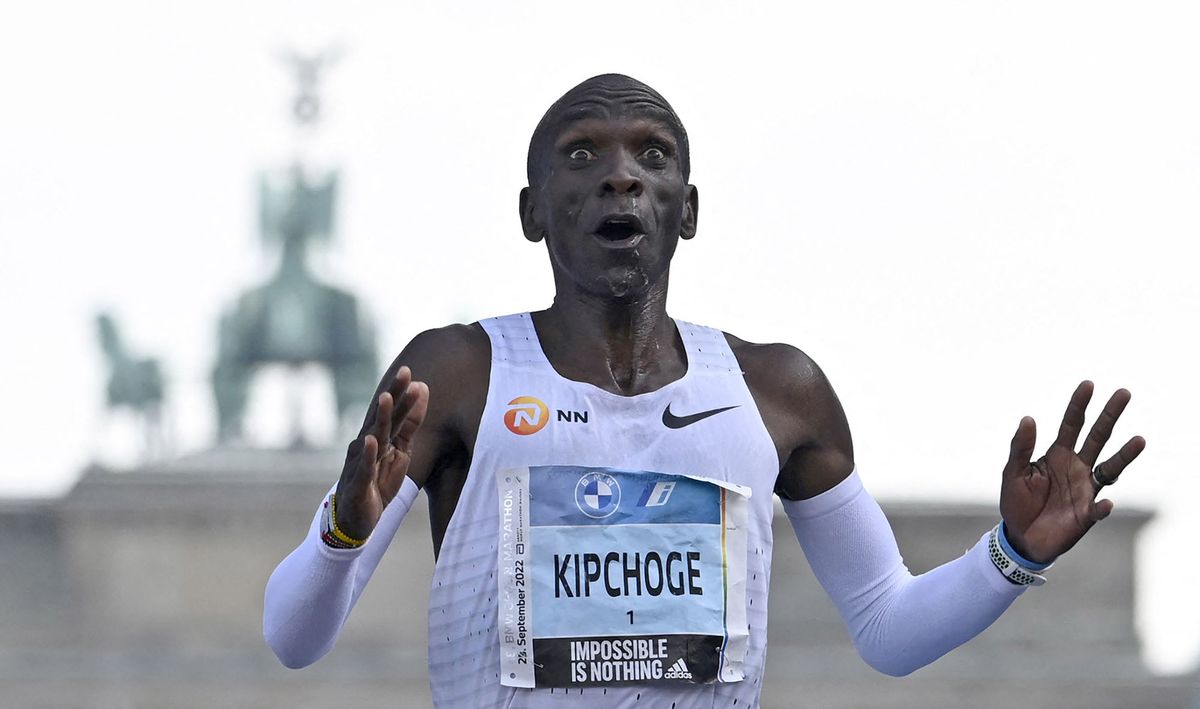As the swarming on Block 405, on 42nd Street in New York, begins to diffuse, delegates to the just concluded 77th Session of the United Nations General Assembly are convening in their respective countries to review their participation.
The Sierra Leone delegation, led by the President, Julius Maada Bio, certainly has so much to recount as proceeds from the just concluded meeting.
The summit with the theme “A Watershed Moment: Transformative Solutions to Interlocking Challenges” presented an opportunity for heads of government and their representatives to discuss their efforts toward building a better world while reassessing their progress towards the implementation of the SDGs.
From Ghana to Kenya, African heads of state put up a good showing at the august gathering, but President Bio’s presentations won the admiration of many.
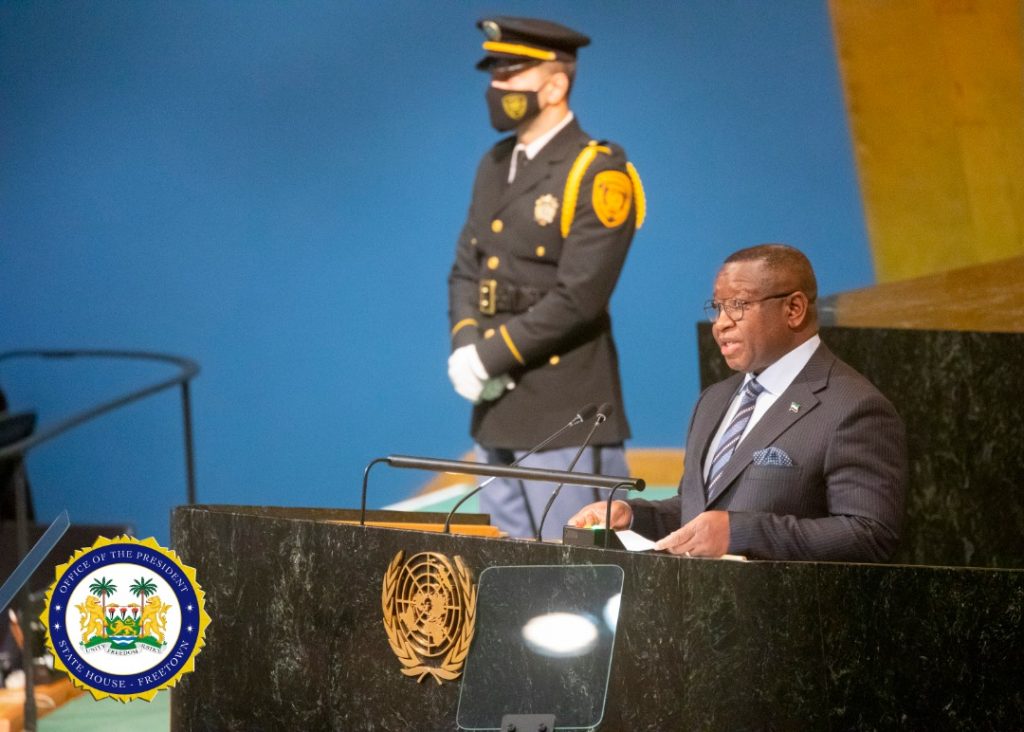 As a human capital development champion, Co-Chair of the UN High-Level Steering Committee on SDG4, and Chair of the Transforming Education Summit, President Bio commenced his engagement in New York by co-hosting the Transforming Education Summit alongside the UN Secretary-General, António Guterres. Mr Guterres had, in his letter to President Bio, commended him for his administration’s commitment to human capital development.
As a human capital development champion, Co-Chair of the UN High-Level Steering Committee on SDG4, and Chair of the Transforming Education Summit, President Bio commenced his engagement in New York by co-hosting the Transforming Education Summit alongside the UN Secretary-General, António Guterres. Mr Guterres had, in his letter to President Bio, commended him for his administration’s commitment to human capital development.
President Bio, while presenting his remark at the Transforming Education Summit, pledged his government’s renewed commitment to promoting foundational learning in Sierra Leone.
In his words, “Today, Sierra Leone commits to cutting in half the number of out-of-school children of primary school age by 2030, compared to today.”
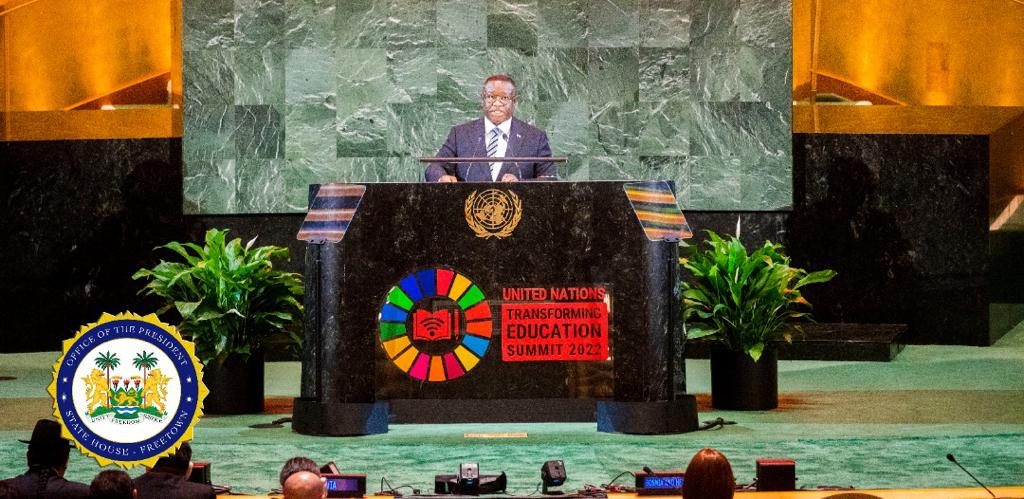 The President stated, “we will launch an Alliance for Foundational Learning through which we further commit to cutting the rate of learning poverty in half or more by 2030.”
The President stated, “we will launch an Alliance for Foundational Learning through which we further commit to cutting the rate of learning poverty in half or more by 2030.”
While reaffirming his administration’s commitment to human capital development, President Bio averred, “In Sierra Leone, we have been aggressively transforming our education sector since 2018. We have done so to address questions around access, inclusion, quality, retention, completion, and transition to technical, vocational, and higher education.”
“Improving educational outcomes in a country where there had been underinvestment in education and failing standards was a challenge. School infrastructure, curriculum, policies, and governance had to be urgently addressed. Girls, pregnant girls, poorer learners, learners in rural areas, and learners with disabilities had unequal access to the education that was on offer. Learners had uneven access to foundational learning, food, teaching and learning materials, WASH facilities, trained teachers, and more. More importantly, we did not have enough money to undertake the necessary reforms we had envisioned.”
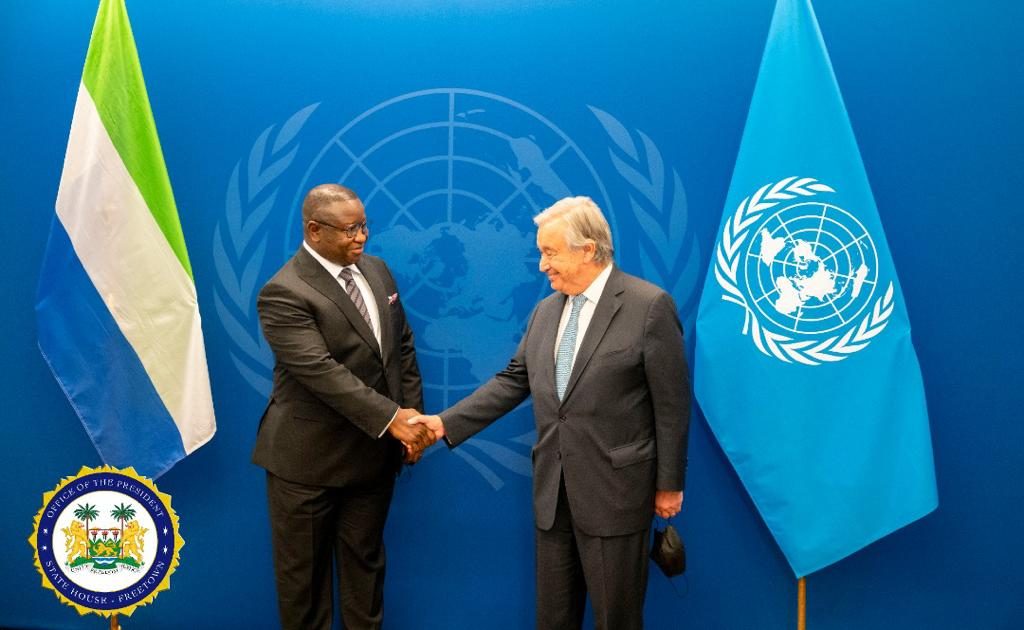 “But because of a strong political will and a commitment of our people, four years later, we have increased enrolment across the board by more than one million additional learners. We have achieved gender parity in enrolment. We have revamped our curricula at all levels to include critical thinking, comprehension, computational thinking, creativity and civic education,” he said.
“But because of a strong political will and a commitment of our people, four years later, we have increased enrolment across the board by more than one million additional learners. We have achieved gender parity in enrolment. We have revamped our curricula at all levels to include critical thinking, comprehension, computational thinking, creativity and civic education,” he said.
He also shared his government’s achievements through the human capital development agenda. According to President Bio, “These are but a sample of the achievements we are proud to share as a nation. How did Sierra Leone do it? We focused on goals, investment and inclusive and innovative strategies.”
“Firstly, we were clear that our goal was to make education our primary vehicle for national development. By making basic and secondary education free, we sent a message to every Sierra Leonean that they deserved to be included. Education is not a luxury; it is a right.
“Secondly, we raised our domestic investment. We raised education’s share of the domestic budget to 20% – school fees and exam fees are now a thing of the past in our government-supported schools. We have expanded school feeding, hired thousands of new teachers, and increased their salaries even during COVID.”
“Thirdly, we innovated our policies and technology tools, always intending to improve inclusion and access. We adopted the Radical Inclusion policy to deliberately support those most at-risk of not reaping the benefits of an education,” he stated.
He also stated that the country is only getting started. He says, “But we are only getting started because I believe that SDG 4 is essential to achieving all other SDGs.”
President Bio also joined other global leaders to address the United Nations General Assembly and used his speech to address important topics, ranging from Climate Change, Education, Gender Mainstreaming and health.
While highlighting the effects of Climate Change on the African continent, President Bio stated, “The adverse effects of climate change are borderless. Global warming, unpredictable weather patterns, rising sea levels, and land degradation profoundly affect food and water security worldwide. There are associated governance and stability costs. We are informed that Africa faces disproportionate risks and costs from climate change.
“We must be consistent in meeting our commitments to all existing international frameworks for addressing climate change. Beyond the usual declarations, we must collaborate on and coordinate mitigation efforts, improve infrastructure for early warning systems, invest more in managing water resources, promote disaster risk management, and enhance the conservation and protection of natural habitats. There are also opportunities, especially for Africa and Sierra Leone, for just energy and rural agriculture transitions.”
He maintained that “Fair and accessible multilateral climate financing can catalyse the global and country-specific measures and innovation necessary to build and support sustainable climate resilience. Green investing does support sustainable development. In these efforts, the roles and interests of women and young people must be central to climate investments.”
In his words, “Sierra Leone is fully committed to concluding the Treaty on the Conservation and Sustainable use of Marine Biological Diversity of areas beyond National Jurisdiction. The BBNJ treaty must prioritise, among other things, conservation measures, fair and equitable sharing of monetary and non-monetary benefits, meaningful capacity development, and the transfer of marine technology.
He also highlighted the importance of Human Capital Development as the key driver of sustainable development.
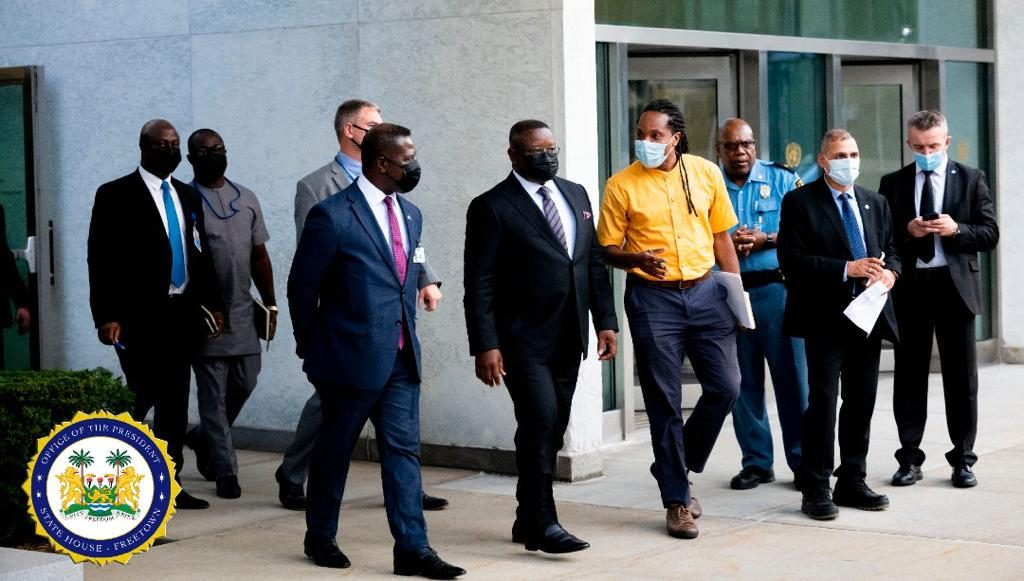 “Human Capital Development is a critical driver of inclusive and sustainable economic development. Sierra Leone has increased domestic financing for education, provided teaching and learning materials, and improved education policies and governance. More children, more girls, including pregnant girls, poorer and rural learners, and learners with disabilities are now in school. But we can go beyond these access deficits,” he said.
“Human Capital Development is a critical driver of inclusive and sustainable economic development. Sierra Leone has increased domestic financing for education, provided teaching and learning materials, and improved education policies and governance. More children, more girls, including pregnant girls, poorer and rural learners, and learners with disabilities are now in school. But we can go beyond these access deficits,” he said.
As co-Chair of the High-Level Steering Committee on SDG4, and champion of the Transforming Education Summit during this 77th session of the General Assembly, I urge concerted global efforts to address the learning crises. We can mobilise innovative financing models, underwrite universal access, especially for girls and learners with disabilities, promote technology in education, make more significant investments in foundational literacy and numeracy, and address “water, sanitation, and hygiene” (WASH) and other infrastructure deficits, support school feeding programmes, fund technical and vocational training, and finance other needs across the full spectrum of the education sector. With close cooperation among States, we are confident that we will address the learning crisis in our time.
While speaking about his administration’s strides against sexual violence, he stated that “Sierra Leone remains exclusively committed to the global agenda on “Putting women and girls at the centre” of inclusive and sustainable development. We believe that we cannot deliver on the 2030 sustainable development schedule without achieving gender equality and women’s empowerment. We must garner multilateral support to achieve and sustain gender equality and women’s empowerment in our lifetime.”
He added, “Sexual violence is a grave threat to justice and the fundamental rights of men, women, and children worldwide. In every corner of the globe, sexual assault survivors are inhibited in holding perpetrators accountable and accessing empowering health, legal, and economic remedies.”
“In Sierra Leone, we have taken extensive legislative and administrative actions to address sexual and gender-based violence since my declaration of rape as a national emergency in 2019.
“Last year, before this august Assembly, I announced that I had directed the Permanent Mission of Sierra Leone to the United Nations to sponsor a standalone resolution on access to justice for survivors of sexual violence at the General Assembly. I called for global solidarity on this issue and for the United Nations to give all survivors of sexual violence the remedy they deserve,” he said.
Under President Bio’s leadership, Sierra Leone remains exclusively committed to the global agenda of putting women and girls at the centre of inclusive and sustainable development. He firmly believes that the 2030 Agenda on Sustainable Development cannot be delivered without achieving gender equality and women’s empowerment.
With broad cross-regional support, the General Assembly has affirmed the Sierra Leone-sponsored resolution titled “International Cooperation on access to Justice, Remedies and assistance to Survivors of Sexual Violence.
No doubt, President Julius Maada Bio’s short but engaging outing at the 77th edition of the UNGA will continue to present memorable soundbites and talking points. However, beyond the speeches – his engagement with other Heads of State and Government, development institutions and multilateral agencies at the sidelines of the meeting will yield ample dividends for Sierra Leone in a short while.


